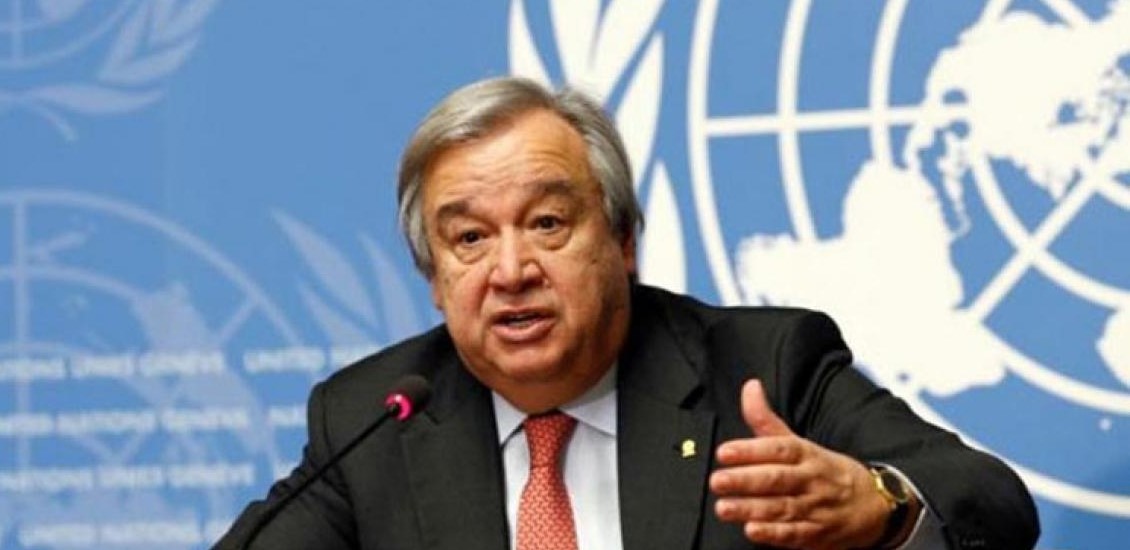September 26. International Day for the Total Elimination of Nuclear Weapons
Sincere, substantive and results-oriented dialogue towards the total elimination of nuclear weapons, led by the nuclear-armed States, is urgently needed, according to UN Secretary-General Antonio Guterres who addressed a High-Level Plenary Meeting of the General Assembly today.
The plenary commemorates the International Day for the Total Elimination of Nuclear Weapons, and included participation by presidents, prime ministers, foreign ministers, ambassadors and civil society representatives from around the world.
Mr Guterres took a lead on the issue in May this year when he released Securing our Common Future: An Agenda for Disarmament.
He called for specific nuclear disarmament measures by States possessing nuclear weapons especially to reinforce the norm against nuclear use.
I renew my appeal to them to: publicly recommit to the fact that a nuclear war cannot be won and therefore must never be fought;
– to refrain from developing new and destabilising nuclear weapons, including non-strategic nuclear weapons, and rethink costly modernisation programmes, and;
– to work immediately to fully implement all commitments undertaken on nuclear disarmament, especially under the Treaty on the Non-Proliferation of Nuclear Weapons.
See below for the full speech.
Presentation by UN Secretary-General, September 26
Last month, I had the extraordinary honour of visiting Nagasaki to commemorate the seventy-third anniversary of the atomic bombing.
The reality of the death and destruction caused by only one nuclear weapon – small by today’s standards – reinforced my personal commitment to achieving a world free of nuclear weapons.
As the only weapons with potentially existential consequences, nuclear weapons pose a grave threat to international, national and human security.
The only sure way to eliminate the threat posed by nuclear weapons is to eliminate the weapons themselves.
Regrettably, the global security environment has deteriorated, making progress in nuclear disarmament more difficult yet also more important.
In truth, verifiable and enforceable efforts to reduce the dangers posed by nuclear weapons bolster regional and international stability, build confidence, and facilitate peace.
For all these reasons, I launched a disarmament agenda in May of this year.
The Agenda recognizes that progress towards the shared goal of a world free of nuclear weapons remains uneven – efforts have stalled and, in some cases, may be going backwards.
That is why I have called for the resumption of sincere, substantive and results-oriented dialogue towards the total elimination of nuclear weapons, as well as the implementation of existing commitments.
States possessing nuclear weapons have a responsibility to lead.
The United States and the Russian Federation – by far the largest possessors of nuclear weapons – have made enormous progress in the reduction of their nuclear arsenals.
I appeal to both governments to re-engage in the dialogue necessary to maintain their historic track record of bilateral arsenal reductions.
As a first step, the United [States] and the Russian Federation should move to extend the New START Treaty by the five years allowed for in its articles and commence discussions that could lead to further agreements on reductions.
Both countries should also work together to overcome their dispute on the Intermediate Nuclear Forces Treaty.
It is equally important that all States possessing nuclear weapons reinforce the norm against nuclear use.
I renew my appeal to them to: publicly recommit to the fact that a nuclear war cannot be won and therefore must never be fought;
– to refrain from developing new and destabilising nuclear weapons, including non-strategic nuclear weapons, and rethink costly modernisation programmes, and;
– to work immediately to fully implement all commitments undertaken on nuclear disarmament, especially under the Treaty on the Non-Proliferation of Nuclear Weapons.
At the same time, all States have responsibilities in the pursuit of nuclear disarmament.
Chief amongst those is the fulfilment, in both letter and spirit, of their non-proliferation obligations.
Non-proliferation is central to the maintenance of international peace and security, and also essential for preserving an environment that is conducive to disarmament.
Disarmament remains essential for sustaining nonproliferation.
They are two sides of the same coin. Backward movement on one will inevitably lead to backward movement on the other.
All States should also work with nuclear-weapon States to bridge divides and seek a return to a common path toward the elimination of nuclear weapons.
I pledge my own personal support and that of the UN system in any and every way.
The United Nations has pursued the goal of nuclear disarmament since the adoption of the very first General Assembly resolution in 1946.
Such a challenging goal will not be achieved overnight. But we must take urgent steps now.
The time has come to make tangible progress to rid our world of nuclear weapons. I pledge my total commitment to work with you towards this shared objective.
Thank you.

